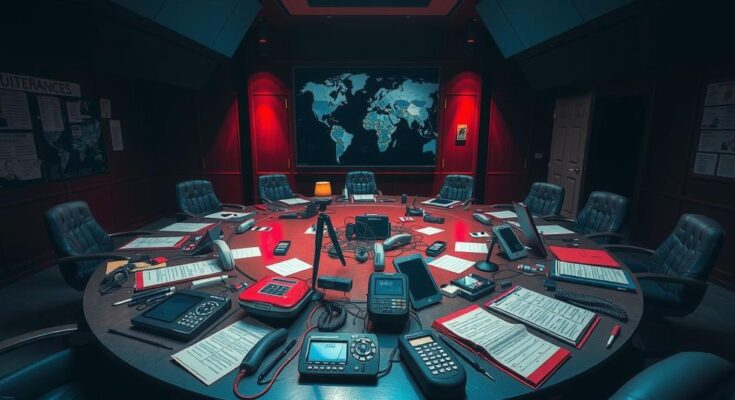“Take No Prisoners” follows Roger Carstens, America’s former top hostage negotiator, as he works to free L.A. public defender Eyvin Hernandez from a Venezuelan prison. Directed by Adam Ciralsky and Subrata De, the documentary juxtaposes government negotiations with the emotional turmoil faced by Hernandez’s family, revealing the complexities and challenges of hostage situations.
The documentary “Take No Prisoners,” directed by Adam Ciralsky and Subrata De, chronicles the efforts of Roger Carstens, America’s former top hostage negotiator, as he strives to secure the release of Eyvin Hernandez, a public defender from Los Angeles, currently imprisoned in Venezuela. The film provides a unique insight into the complexities of hostage negotiations and the emotional struggles faced by families involved.
The narrative begins with a dramatic scene at a Miami tarmac, where Venezuelan President Nicolás Maduro’s nephews, convicted drug traffickers, are exchanged for seven Americans, including Matthew Heath and Osman Khan. Despite capturing this significant event, Ciralsky and De chose to focus on Carstens’ efforts to navigate the intricate and harrowing journey of freeing Hernandez, who was detained on charges of “criminal association” after crossing the Colombian-Venezuelan border.
Ciralsky noted, “While there was plenty of gold in retelling the events leading up to the initial Miami release, we felt that the odyssey to rescue Eyvin might make for a compelling vérité documentary.” This accessibility to the hostage negotiation process allowed Ciralsky to document the challenges faced during the negotiations, emphasizing that the ordeal was far more complex than anticipated.
The filmmakers received remarkable access to the negotiations through cooperation with the Biden administration, observing discussions from Canouan to Caracas. Ciralsky’s insights shaped not only the documentary but also inspired a 2024 Vanity Fair article entitled “Take No Prisoners,” which is currently being adapted into a scripted series titled “The Envoy”.
In an interview, Ciralsky expressed surprise at the lack of public attention surrounding Hernandez’s plight compared to high-profile cases like those of Brittney Griner. He remarked, “We could not believe that an L.A. County public defender was rotting in a Venezuelan prison, and nobody was taking notice.” De added the significance of Roger’s equal treatment of every individual involved, demonstrating his commitment to the cause.
The access afforded to the filmmakers allowed them to capture the long-term nature of the negotiations, a departure from the immediate frenetic activity typically associated with such situations. Ciralsky remarked on the administration’s perceived success in securing American freedoms, viewing it as a point of pride in their foreign policy agenda.
“Take No Prisoners” artfully showcases the intense governmental and political drama juxtaposed with the emotional toll on the Hernandez family. De explained, “The people at the center of these hostage situations live in a slow… high-wire emotional state.” This shared emotional landscape resonates throughout the documentary, highlighting the intertwined struggles of families and negotiators.
As the film gears up for distribution following its SXSW premiere, Ciralsky indicated there is substantial interest in their work and its unique narrative structure. This non-linear approach of combining article, documentary, and scripted series aims to effectively convey the harrowing tales of those affected by hostage situations, ultimately shedding light on an often-overlooked issue.
In summary, “Take No Prisoners” provides an essential exploration of the hostage negotiation process through the lens of Roger Carstens’ mission to rescue Eyvin Hernandez. The documentary not only highlights the emotional struggles of those left behind but also underscores the complexities of international negotiations. With notable access granted by the Biden administration, the film promises to illuminate the intricacies of family dynamics and governmental diplomacy in times of crisis.
Original Source: variety.com




